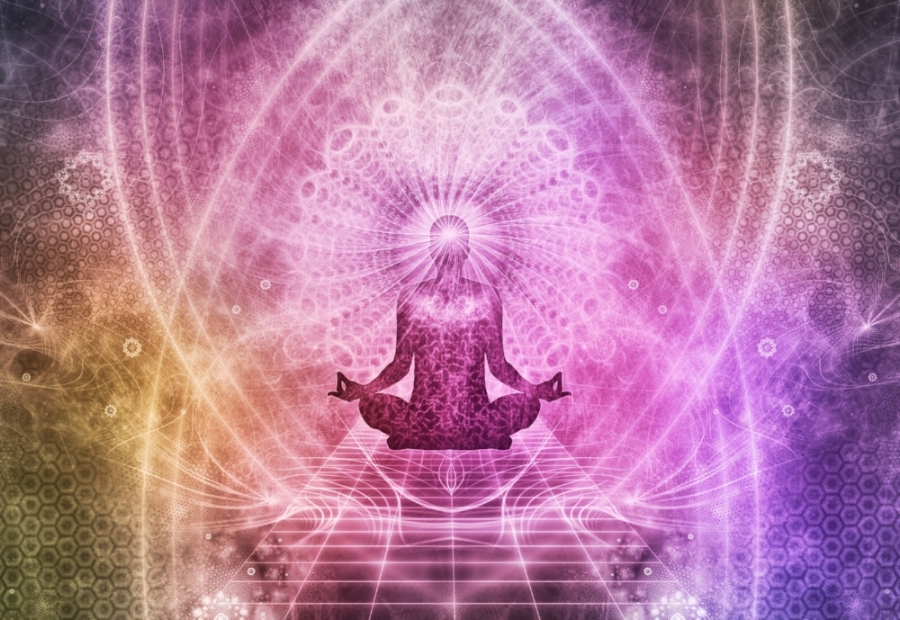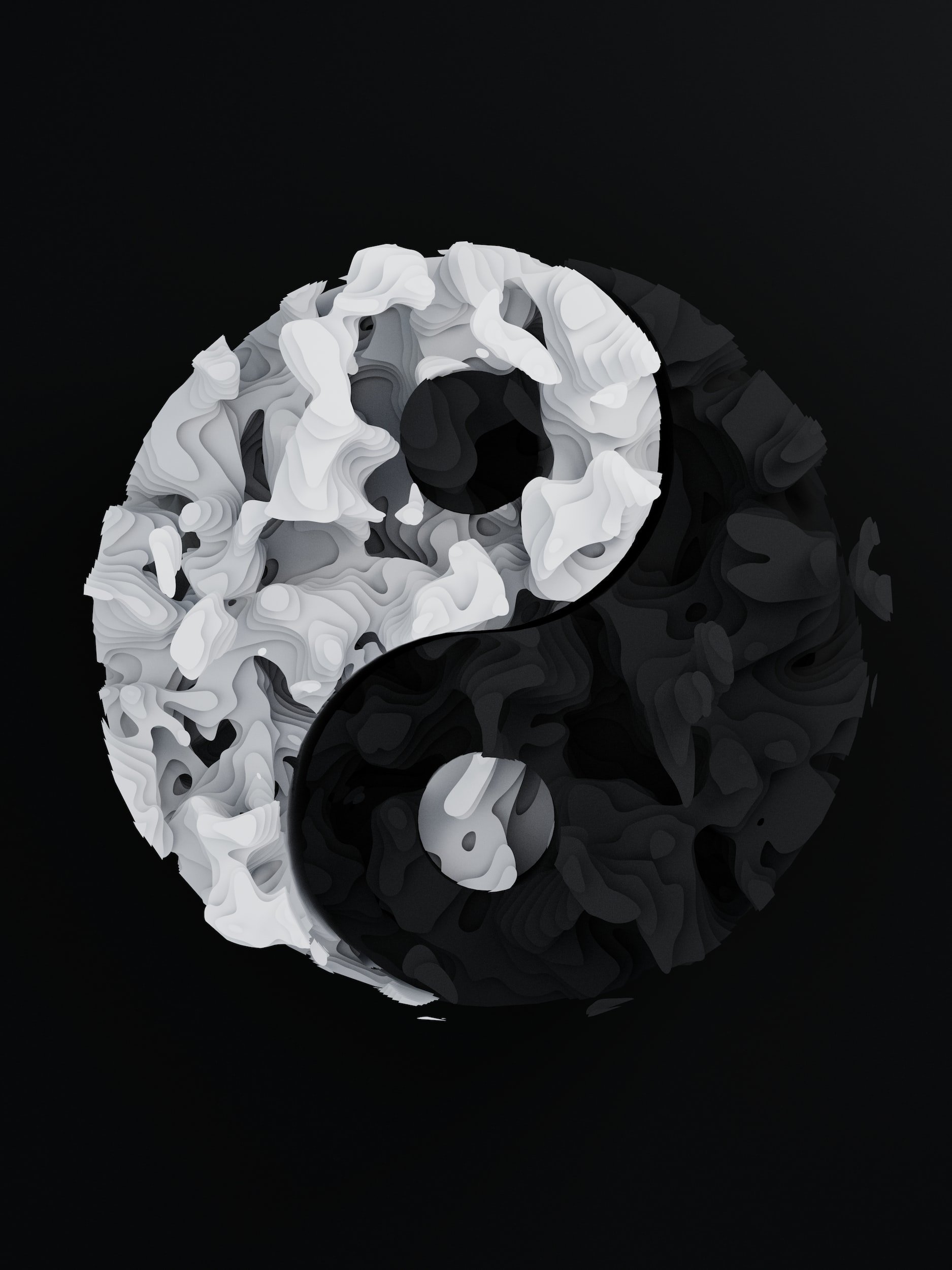by Salvador Cefalu, M.S., L.Ac.
The integration of body, mind and spirit is essential to holistic healing practices and is gaining an increased level of importance in the conventional medical world as well. Having once been considered non-scientific, this trinitarian concept is becoming embraced by Western medicine and accepted as an integral basis for explaining the cause of certain health disorders, especially those considered to be idiopathic or psychosomatic.
Chinese Medicine has established a theoretical model that's based on this trinity as well and forms a framework to help us understand these concepts systematically in order to gain greater clarity about the integration of our body, mind and spirit.
The Trinity of the Triple Heater System
Early Daoist philosophers who were fundamental in establishing Chinese medical theory were also intrigued with this trinitarian concept of body, mind and spirit. These philosophers articulated this trinity in terms of Heaven, Humanity and Earth to explain our connection to the universe. Superimposed on the body, the microcosmic system of this macrocosmic trinity is referred to as the Triple Heater.
The Triple Heater is a system comprised of three energy centers: the head, the chest and the abdominal/pelvic region.
The head is part of the Upper Heater and relates to Heaven; the chest comprises the Middle Heater, which relates to Humanity; the abdominal and pelvic regions comprise the Lower Heater and relate to Earth.
The Upper Heater Relates to the Level of Heaven
The Spirit can be related to the Upper Heater of the Triple Heater system by virtue of the brain and the sensory organs of the eyes, ears and nose.
According to Daoist teachings, the sensory organs of sight, hearing and smell are considered gateways and when 'opened' allow an awakening of perception to higher dimensions of consciousness.
In Chinese Medicine, the head - because of its location on top of the body - is in closest proximity to Heaven's energy above. This gives the brain a close relationship to the energy of Fire. Since the brain as an organ is supported by the Kidney system, it also relates to the element of Water.
This creates an interesting association of the brain as Fire and Water - two energies in opposition based on the control cycle in Five Element theory.
Since the brain has aspects of both Fire and Water, a healthy balance of these two energies is required for optimal function.
Chinese Medicine has established diagnostic parameters for assessing the activity of these energies within the body which helps guide the treatment process to bring these energies into a state of greater balance. Through this process, a normalization of organ function can be achieved to impact one's mind, body and spirit.
The Middle Heater Relates to Level of Humanity
The Middle Heater of the Triple Heater system is comprised of the chest and relates to the Heart and Pericardium organs which are associated with the Fire element and the level of Humanity.
The Shen, or spirit, is stored in the Heart. Fire energy is about "intelligence" and "awareness" so in this way we see the correlation of the Heart and the Middle Heater with the level of Humanity as an expression of higher intelligence.
Physically, the pericardium is a protective membrane around the heart and in Chinese Medicine the major function of the Pericardium organ is more metaphorical as it protects our spirit from emotional trauma.
It is said that the Pericardium holds the traumas that occur in one's lifetime and therefore protects one's spirit from being disrupted by past emotional stresses.
However, if there is an excessive amount of trapped energy in the Pericardium from past emotional stress, a person's heart and mind will be impacted physically and psychologically causing health disorders of the heart itself or mental illness.
The Lower Heater Relates to the Level of Earth
Corresponding to the Kidney system and the Water Element is the Lower Heater and this level energetically most closely relates to the health of the body itself. Water comes from the earth, so the energetics of the Lower Heater helps us gather energy from the earth to sustain our physical life.
Your Jing, or Essential Qi, is stored in the Kidney system and corresponds on a cellular level to your genetic material, the chromosomes and DNA.
Since Jing or Essential Qi is stored in the Kidneys, the health of your physical body intimately relates to the Water energy. Daoist practices are generally based on the idea of "Yang Shen", to nourish life. From this perspective, we see how nourishing our life is about sustaining cellular health and maintaining healthy gene expression.
Telomeres, a segment of DNA at the end of chromosomes, are indicators of cellular health. As the telomeres shorten, the lifespan of the genes shorten, so we can see how the integrity of the genes and the process of aging relates to the abundance of Water energy contained by the body.
In this regard, maintaining the health of the Kidneys, including the genitourinary and reproductive systems as a whole, is integral to maintaining the health of the physical body.
Balance Among the Triple Heaters is Essential to Balance in Body, Mind and Spirit
Historically, the belief in psychosomatic causes of disease was readily accepted in Chinese Medicine.
Chapter 8 of the ancient text the Ling Shu, or Spiritual Pivot, the canon of Acupuncture dating back to the 5th Century B.C., states that "all diseases are rooted in Spirit."
From a Daoist Chinese medical perspective, it's clear that maintaining the health of the spirit supports the health of the mind and spirit. With these aspects being rooted in the Triple Heater system of the body, we can understand that maintaining balance of these heaters on a physical level is essential to having balance in body, mind and spirit.
You can learn fundamental practices to balance this system in my twice monthly Triple Heater Qi Gong classes. Learn more and register now. I’ll also be sharing elements of this practice in the Yin Yoga Integration Teacher Training.
Never feel overwhelmed by what to eat again.
Join the waitlist for our one-of-a-kind-nutrition course.
Salvador Cefalu, M.S., L.Ac. is the Founder & Co-Director of A Center for Natural Healing in Santa Clara, California, a health and wellness clinic run by he and his wife, Setareh Moafi, Ph.D., L.Ac. that specializes in Classical Chinese Medicine. Salvador is a leading U.S. practitioner of Japanese Meridian Therapy, a rare form of non-insertion Acupuncture using Gold & Silver needles. More information at www.acenterfornaturalhealing.com.


